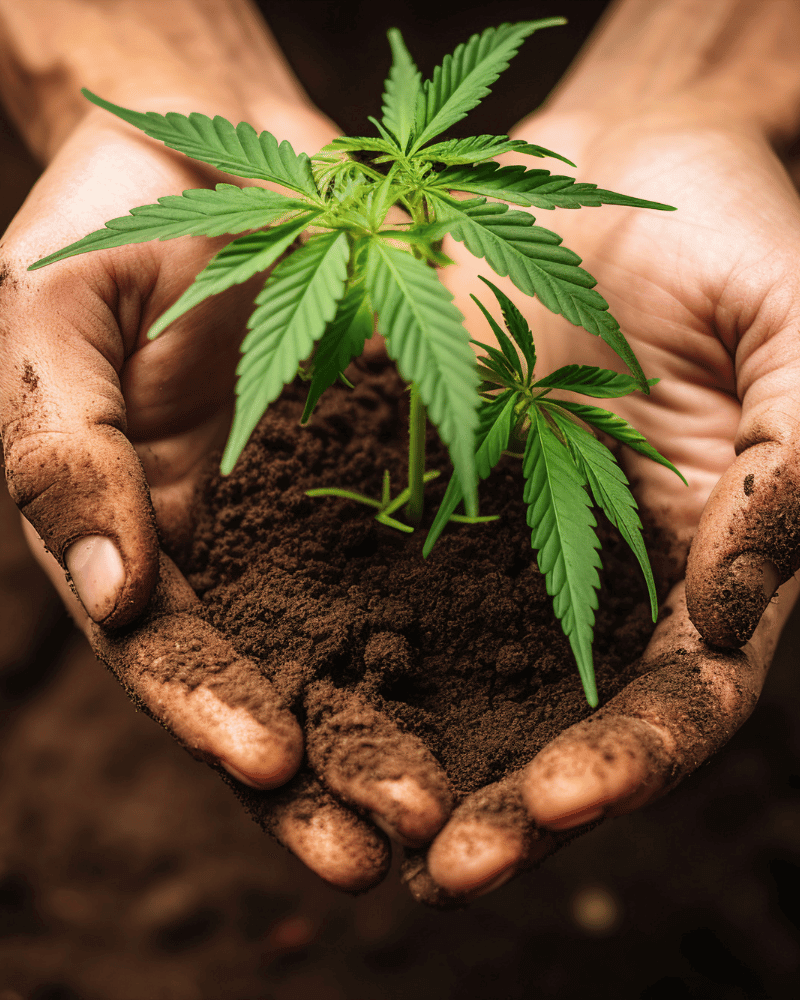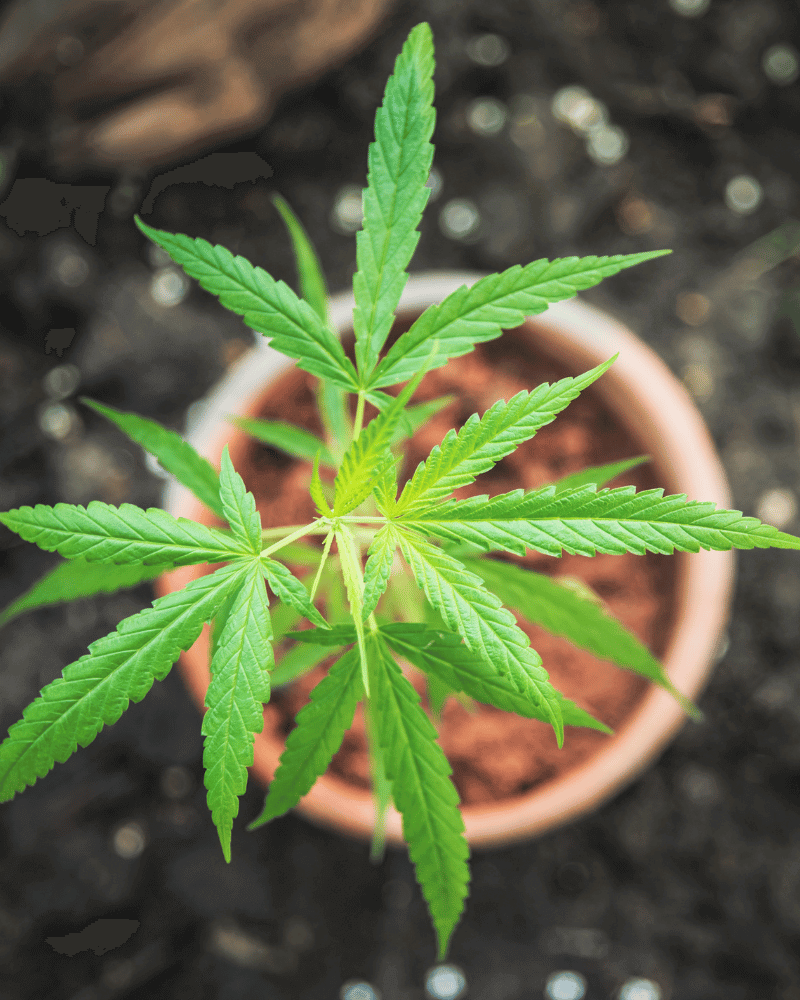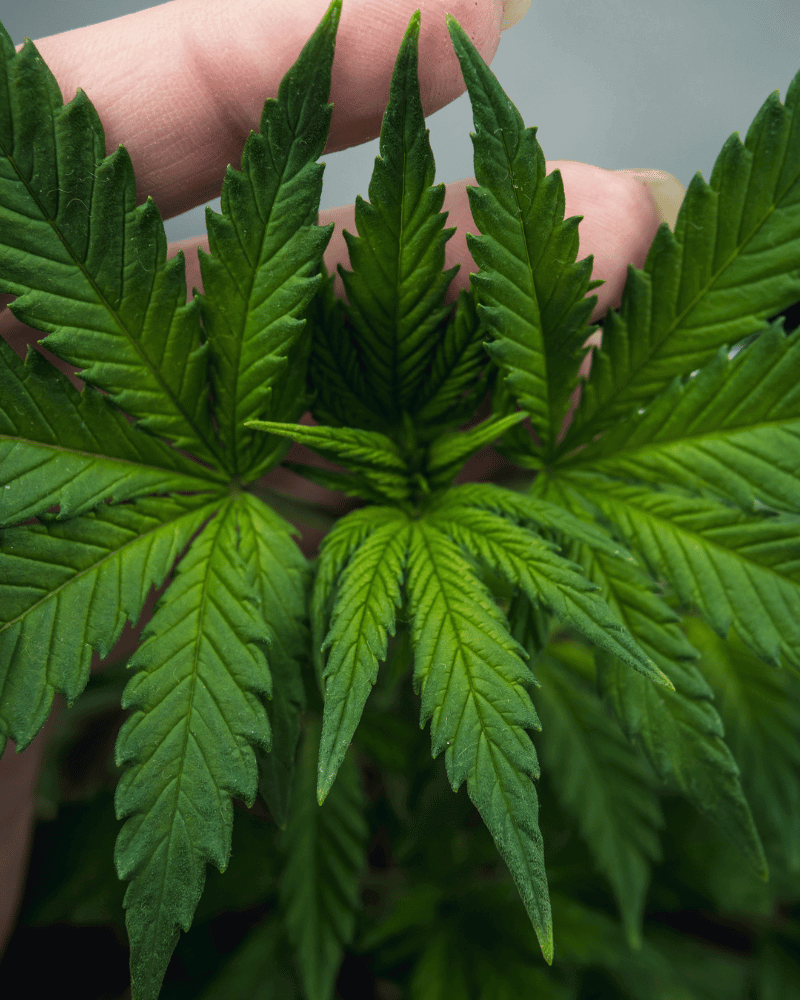What are hemp plants?
Hemp plants, also known as cannabis, are versatile plants with many uses. They belong to the Cannabaceae family and have distinctive, finger-shaped leaves.
There are two main types: Industrial hemp has a low THC content and is used for textiles, paper, building materials and food. Medicinal and recreational cannabis plants contain higher levels of THC and/or CBD, making them popular for medicinal and recreational uses.
Hemp plants are easy to care for and sustainable, ideal for hobby gardeners and professionals.
Advantages of hemp plants
Hemp plants, also known as cannabis, are versatile and sustainable. They can be used for textiles, paper, building materials and food. Hemp is environmentally friendly as it grows quickly, requires little water and no pesticides. It improves soil quality and binds CO2. Hemp plants offer health benefits from CBD, such as pain relief and anti-inflammation. They are also economically beneficial, creating jobs and opening up new markets. Hemp seeds and hemp oil are rich in nutrients and promote a healthy diet. In addition, hemp plants support biodiversity and contribute to a balanced ecosystem.


Buy female cannabis plants - High-quality selection of cannabis plants
When you buy female cannabis plants, you get a high-quality selection of cannabis plants that are ideal for growing. Female plants are particularly sought after as they produce flowers that are rich in cannabinoids such as THC and CBD. These plants are perfect for medicinal and recreational applications.
Take a look at our carefully selected collection of female hemp plants plants. Our plants are known for their robustness and high yields and are cultivated with the utmost care to guarantee you the highest quality and best yield. Discover our selection now and find the perfect hemp plant for you!
Growing hemp plants - step-by-step instructions
Growing hemp plants is easier than you think! With our step-by-step instructions, you'll be a hemp gardener in no time. Here are the basic steps you should follow:
- Choose the right seeds: Start with high-quality hemp seeds. Female seeds are ideal as they produce the valuable flowers.
- Germinating the seeds: Let the seeds germinate in damp paper towels until small roots become visible.
- Planting the seedlings: Plant the germinated seeds in nutrient-rich soil or another suitable growing medium.
- Lighting and watering: Make sure your plants get enough light and water. Indoor plants require special grow lights.
- Care and fertilization: Make sure your plants are fertilized regularly and remove dead leaves to encourage growth.
- Flowering phase: During the flowering phase, the plants need special care and possibly more light.
- Harvesting and drying: When the flowers are ripe, harvest them carefully and dry them in a dark, well-ventilated place.
Our detailed instructions will help you to successfully implement each step. Good luck growing your own cannabis plants!
For the best results, we recommend that you use our high-quality cannabis seeds. We offer a carefully selected collection of cannabis seeds that are known for their high germination rate and robustness. Take a look at our selection and find the perfect seeds for your cultivation project. With our seeds, you lay the foundation for healthy and high-yielding cannabis plants.
Buying hemp plants in Germany - legal information and tips
The purchase and cultivation of hemp plants in Germany is regulated by new laws. Here are the most important legal information and practical tips:
Legal information
- Industrial hemp: cultivation permitted with THC content below 0.3%, also for private users.
- Cannabis plants for private use: Adults are now allowed to grow up to three female plants for their own use, but only in private, non-public areas.
- CBD products: Legal with THC content below 0.3%, only buy from certified suppliers.
- Buying seeds: Legal if used for permitted home cultivation.
Practical tips
- Seed quality: Choose high-quality seeds from trustworthy suppliers.
- Indoor cultivation: Observe correct lighting, ventilation and temperature.
- Care: Water and fertilize regularly, remove dead leaves.
- Harvest: Harvest at the right time and dry the flowers carefully.
With these legal guidelines and practical tips, you can grow hemp plants safely and successfully in Germany.

FAQs
The cultivation of hemp plants begins with the selection of high-quality seeds. Let the seeds germinate in damp paper towels until small roots become visible. Plant the germinated seeds in nutrient-rich soil or another suitable growing medium. Make sure that your plants get enough light and water. Special grow lamps are required for indoor cultivation. Care for your plants by fertilizing them regularly and removing dead leaves. The flowering phase requires special attention and possibly more light. Harvest the flowers when they are ripe and dry them in a dark, well-ventilated place.
Hemp plants offer a number of advantages. They are sustainable and environmentally friendly as they grow quickly, require little water and no pesticides. Hemp improves soil quality and binds CO2, making it an environmentally friendly alternative. Health-wise, hemp plants, especially those with high CBD content, offer benefits such as pain relief, anxiety reduction and anti-inflammatory properties. Economically, they create jobs and promote the development of new markets.
The time it takes to harvest hemp plants varies depending on the variety and growing conditions. On average, it takes around 3 to 6 months from germination to harvest. Indoor growing can be quicker as conditions can be controlled, while outdoor plants may have a longer growing period. It is important to check the plants regularly and harvest the flowers when they have reached optimum maturity.
Hemp plants need regular care to grow healthy and strong. This includes regular watering, especially during dry periods, as well as fertilizing with suitable nutrients. It is important to check the plants for pests and diseases and to remove dead leaves. Good ventilation is also crucial, especially when growing indoors, to prevent mold growth.
Yes, hemp plants can be grown outdoors, provided the climate is suitable and the legal requirements are met. Outdoor cultivation offers the advantage that the plants receive natural sunlight, which can lead to more robust and higher-yielding plants. Make sure the plants get enough sunlight and are protected from extreme weather conditions.
The most common problems when growing hemp plants include pest infestation, mold, nutrient deficiency and overwatering. Pest infestation can be prevented by regular inspections and the use of natural pesticides. Mold is often caused by excessive humidity and poor ventilation. Nutrient deficiencies are manifested by yellowing leaves and stunted growth, which can be remedied by balanced fertilization. Overwatering can cause root rot, so good drainage is important.













































